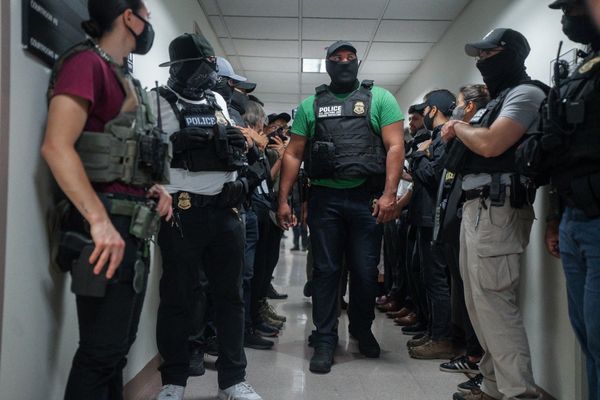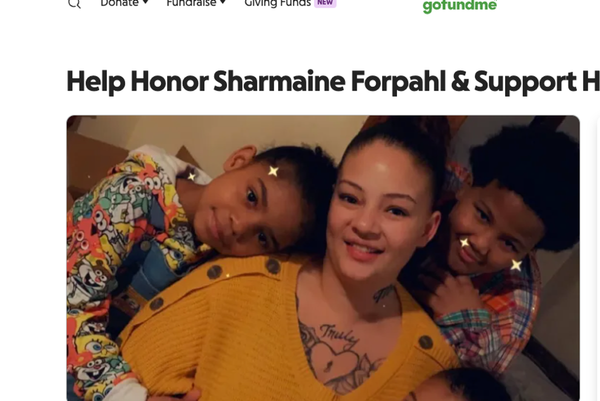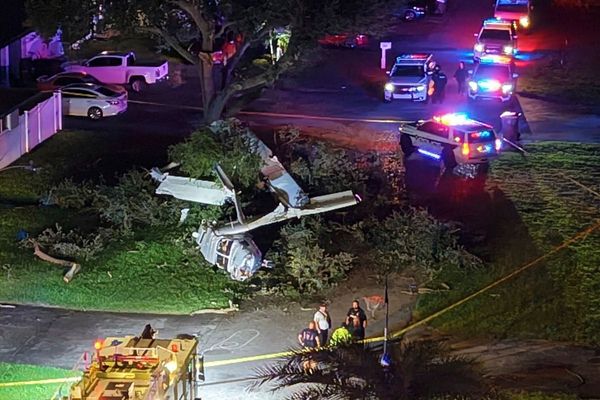
At least 61 people have been killed in Israeli attacks in Gaza, including at least two aid seekers, as the United Nations agency for Palestinian refugees, UNRWA, warns that malnutrition rates among children are increasing in the besieged enclave.
At least 23 people were killed and dozens of others were wounded in an Israeli air attack on the Shati refugee camp in northern Gaza on Tuesday, medical sources told Al Jazeera.
In southern Gaza, at least two women were killed and 30 others were wounded near an aid distribution point north of Rafah, run by the controversial Israeli- and United States-backed Gaza Humanitarian Foundation (GHF).
The UN said that at least 875 people have died trying to access aid in Gaza since late May, when the GHF began operating.
Earlier, the Palestinian Civil Defence said that its teams “transported at least 18 martyrs and dozens of wounded since dawn”, most of them following Israeli air strikes in northern Gaza.
Israel’s military also issued a forced displacement order for Palestinians living in 16 areas in northern Gaza.
Among the areas affected is Jabalia, a ravaged town where residents have been fleeing in fear and panic.
“People are using their cars and donkeys to evacuate the area, and all are moving towards the unknown; they don’t know where to go,” Al Jazeera’s Moath al-Kahlout said.
“They are also struggling with transportation as there is no fuel to move from here and other areas. So, the situation is very chaotic. Everyone living here is in a state of panic.”
One Israeli strike also hit a tent in Gaza City housing displaced Palestinians, killing six people, according to the Civil Defence agency.
Rising malnutrition
Separately on Tuesday, health teams in Gaza for UNRWA warned that malnutrition rates are increasing, especially since the Israeli siege was tightened more than four months ago.
According to UNRWA head General Philippe Lazzarini, one in 10 children screened since 2024 has been malnourished.
In a statement, the agency called malnutrition in the Strip “engineered and man-made”.
The warning comes as European Union foreign ministers met in Brussels to discuss possible action against Israel over its assault on Gaza if the humanitarian situation does not improve.
EU foreign policy chief Kaja Kallas put forward 10 potential options on Tuesday after Israel was found to have breached a cooperation deal between the two sides on human rights grounds.
The measures range from suspending the entire accord or curbing trade ties to sanctioning Israeli ministers, imposing an arms embargo and halting visa-free travel.
Despite growing anger over the devastation in Gaza, EU states remain divided over how to tackle Israel, and there was no agreement on taking any of the moves at the Tuesday meeting.
“We will keep these options on the table and stand ready to act if Israel does not live up to its pledges,” Kallas told journalists. “The aim is not to punish Israel. The aim is to really improve the situation in Gaza.”
The meeting in Brussels came in the wake of the deal largely forged by Kallas and Israeli Minister of Foreign Affairs Gideon Saar. Saar met with EU leaders on Monday after agreeing last week to allow desperately needed food and fuel into the coastal enclave of 2.3 million people, who have endured more than 21 months of Israel’s deadly assault amid a crippling blockade.
“The border crossings have been opened, we see more trucks going in. We see also operations of the electricity network, but it’s clearly not enough because the situation is still untenable,” Kallas said.
Details of the deal remain unclear, but EU officials have rejected any cooperation with the GHF over ethical and safety concerns.
Calls for sanctions
European nations like Ireland, the Netherlands and Spain have increasingly called for the EU’s ties with Israel to be reassessed in the wake of the war, which has killed more than 58,000 Palestinians – mostly women and children.
A report by the European Commission found “indications” that Israel’s actions in Gaza are violating human rights obligations in the agreement governing its ties with the EU, but the bloc is divided over how to respond.
Public pressure over Israel’s conduct in Gaza made the new humanitarian deal possible, Dutch Minister of Foreign Affairs Caspar Veldkamp said, adding, “That force of the 27 EU member states is what I want to maintain now.”

Kallas will update EU member nations every two weeks on how much aid is actually getting through to Gaza, Irish Foreign Minister Thomas Byrne said.
“So far, we haven’t really seen the implementation of it, maybe some very small actions, but there’s still slaughter going on; there’s still a denial of access to food and water as well,” he said. “We need to see action.”
Spanish Foreign Minister Jose Manuel Albares Bueno said details of the deal were still being discussed and the EU would monitor results to see if Israel is complying.
“It’s very clear that this agreement is not the end – we have to stop the war,” he said.
There have been regular protests across the continent, including a small one on Tuesday outside the European Council, where the ministers were discussing the aid plan.
Dozens of protesters in Brussels called for more aggressive actions to stop Israel’s offensive in the largely destroyed Gaza Strip, where famine looms and the healthcare system is on the brink of collapse.
Alexis Deswaef, the vice president of the International Federation for Human Rights, said the EU “must now agree on a package of sanctions for Israel to end the genocide and for humanitarian aid to enter Gaza”.
“It was able to do this for Russia,” said
Human rights groups largely called the EU’s actions insufficient.
“This is more than political cowardice,” said Agnes Callamard, secretary-general of Amnesty International. “Every time the EU fails to act, the risk of complicity in Israel’s actions grows. This sends an extremely dangerous message to perpetrators of atrocity crimes that they will not only go unpunished but be rewarded.







